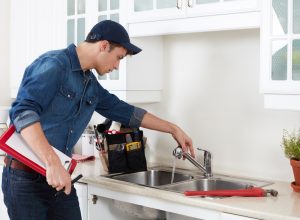 One of the biggest challenges with keeping a plumbing system in good condition is detecting problems before they have the chance to cause serious damage. Most of the system is hidden from sight, and a lot of the issues that commonly afflict plumbing systems don’t show obvious signs at first. Without professional training or equipment, you have to know what to look for if you want to catch plumbing problems in time to prevent a lot of the damage they can cause. Have a look below for some of the more common signs that you should call for a plumber.
One of the biggest challenges with keeping a plumbing system in good condition is detecting problems before they have the chance to cause serious damage. Most of the system is hidden from sight, and a lot of the issues that commonly afflict plumbing systems don’t show obvious signs at first. Without professional training or equipment, you have to know what to look for if you want to catch plumbing problems in time to prevent a lot of the damage they can cause. Have a look below for some of the more common signs that you should call for a plumber.
Leaks
Obviously, any time you spot a leak in your plumbing system, it’s a good idea to call a plumber. This applies even to relatively small leaks, as often happens with faucets. A leaky faucet may seem like little more than an inconvenience, but it can waste hundreds of gallons of water on an annual basis if it isn’t dealt with.
There are a lot of times in which a leak occurs out of sight, though. How, then, do you detect it? Well, there are still some easy ways to tell if you have a leak in the system that needs to be dealt with. Dropping water pressure could mean that you have a leak in the system somewhere, or that there is a blockage developing. Another way to tell is to turn off all the water appliances in your home, and then check your water meter. If the meter is still running, then you probably have a leak somewhere that is diverting water out of the system. Finally, you should keep an eye on your monthly water bills. If they suddenly start to rise, even though you haven’t been using more water than usual, it might mean that you have a leak somewhere.
Limescale
Limescale is the single most common form of pipe blockage that affects residential plumbing systems. It’s caused by long-term exposure to hard water, which is water with a high concentration of magnesium and calcium particles. As the water flows through the pipes, it deposits these minerals on the walls. The mineral deposits eventually grow large enough to start restricting the flow of water through the pipes. If not caught and removed in time, the limescale will harden and become nearly impossible to remove without replacing the entire pipe.
The best way to tell if you have a developing limescale problem, aside from the dropping water pressure, is to look at your faucets and in your bathtub or shower. If you notice a white film or chalky substance in those areas, that’s probably limescale. If you have it in those areas, you almost certainly have it in your pipes. Make sure you call a professional plumber if you suspect that this is the case.
Performance Plumbing offers comprehensive plumbing services in St. Louis, MO. If you need professional plumbing repairs, contact us today to schedule an appointment. We’ll make sure that your plumbing system is restored to proper condition.
